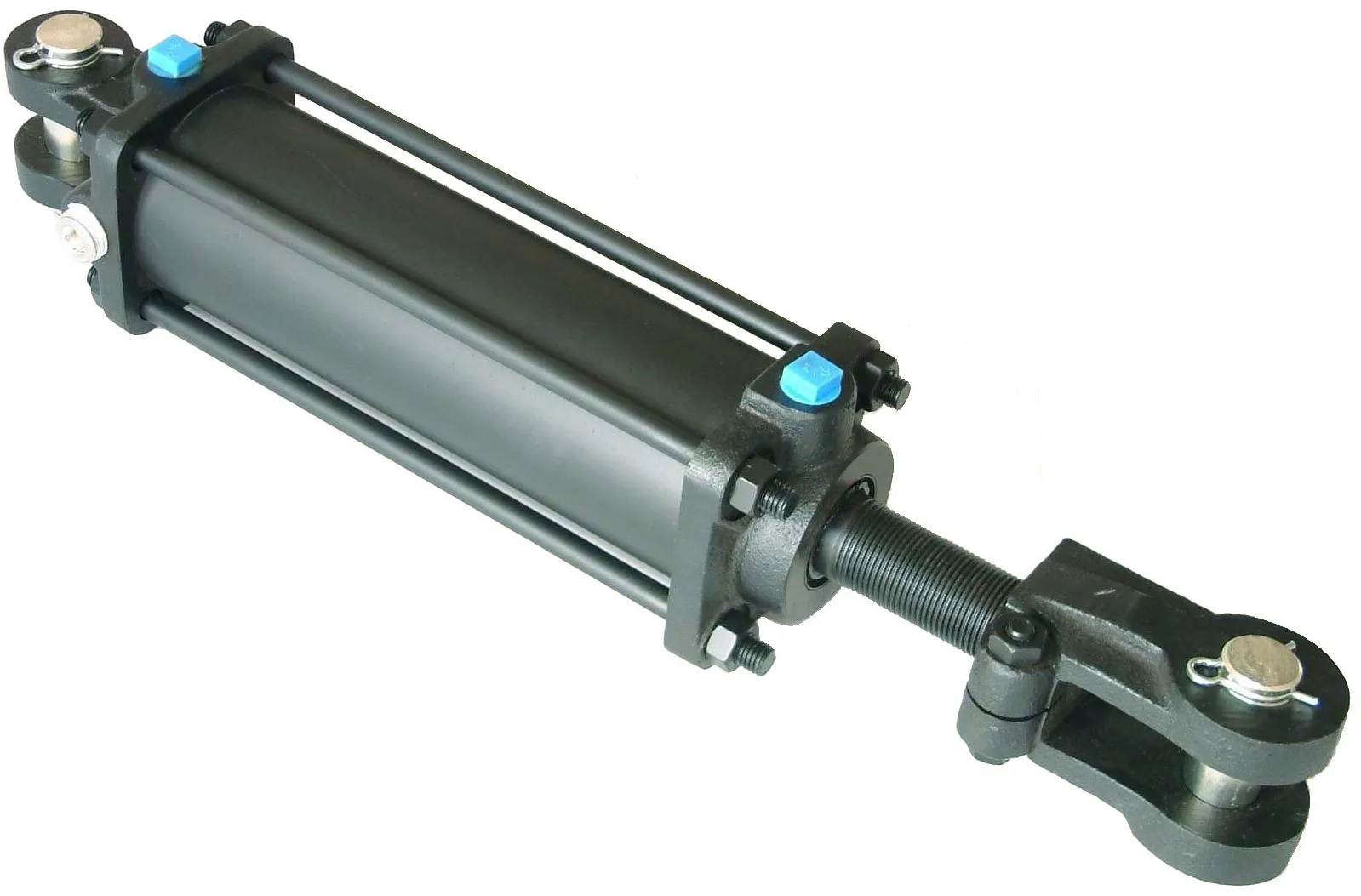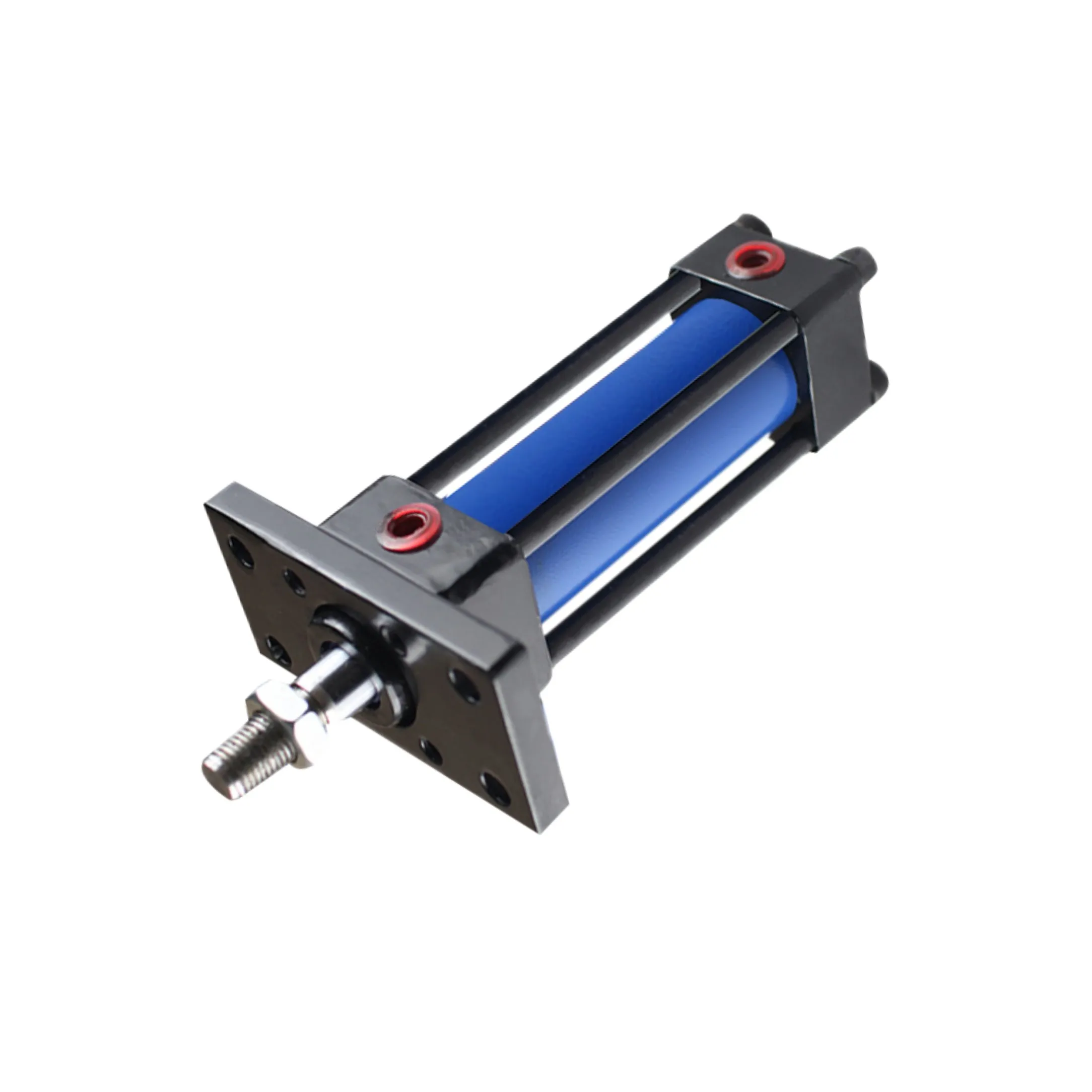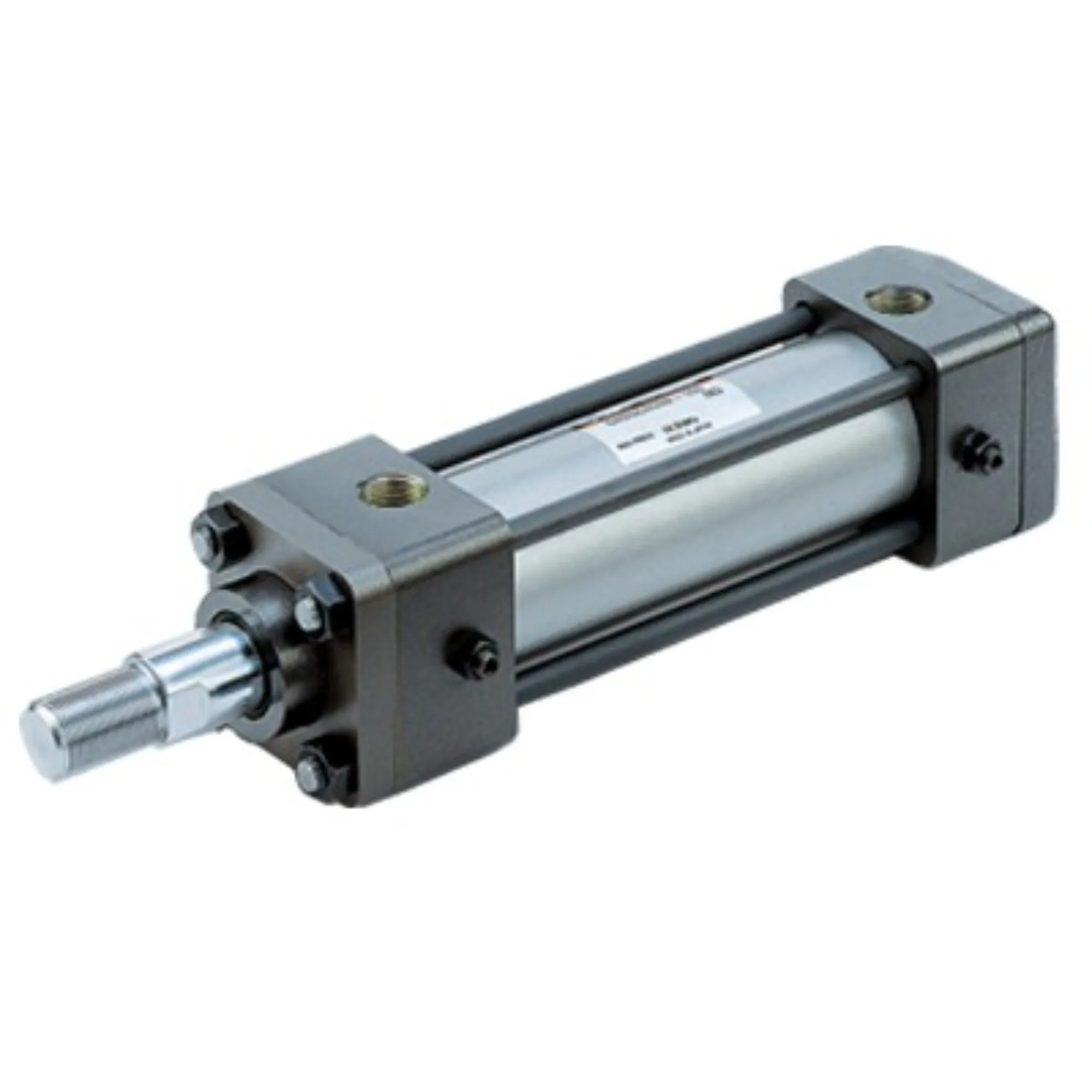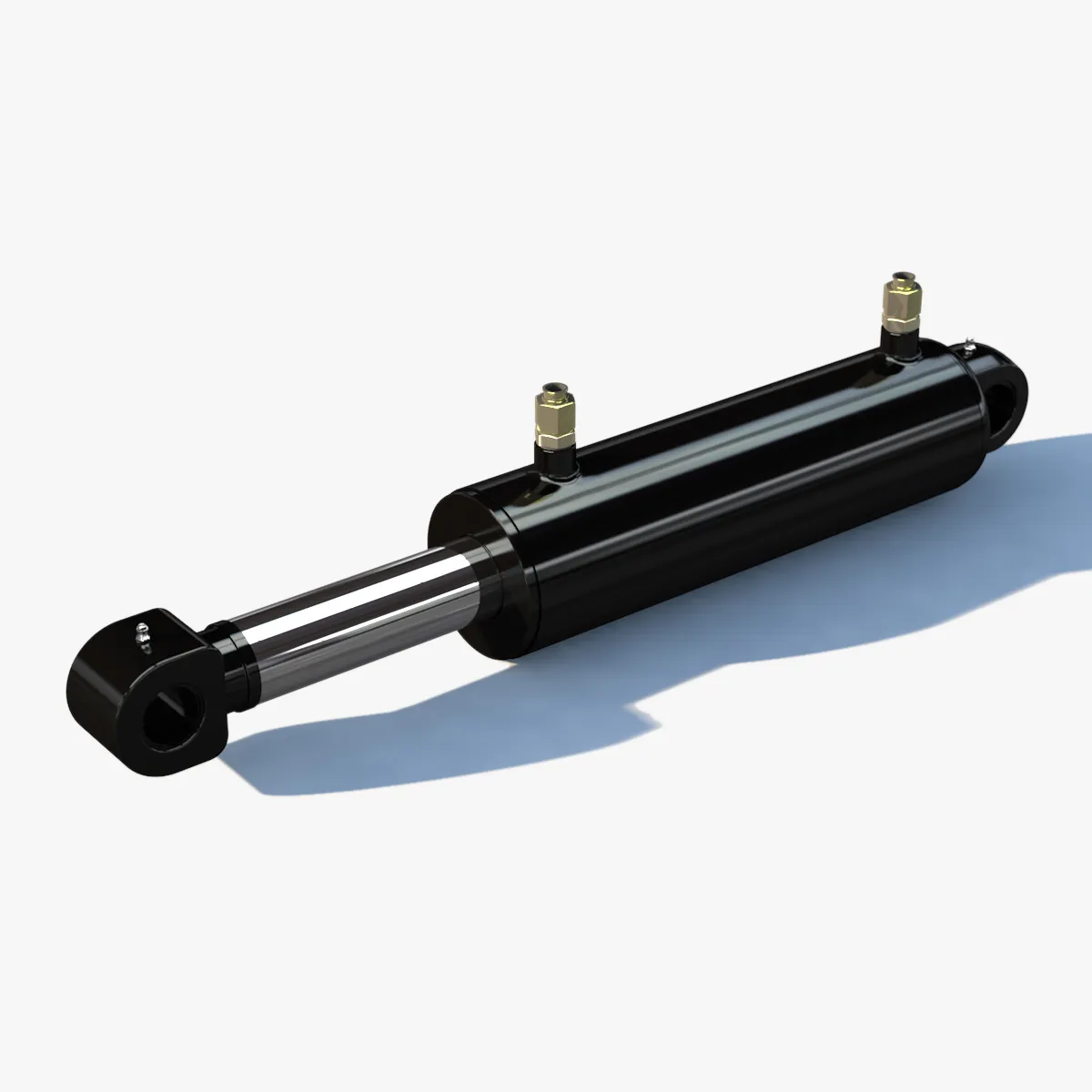Introduction
In today’s rapidly evolving industrial landscape, the demand for efficient and reliable hydraulic systems has never been greater. As technology continues to advance, so too does the need for innovative solutions that can enhance performance, increase productivity, and ensure optimal safety. One such solution is the smart mill-type welded hydraulic cylinder, which features integrated sensors, controllers, and feedback systems for advanced condition monitoring and control.
Defining Smart Mill-Type Welded Hydraulic Cylinders
Smart mill-type welded hydraulic cylinders are cutting-edge hydraulic components that incorporate intelligent technology to provide real-time data on the cylinder’s performance and operating conditions. By integrating sensors, controllers, and feedback systems into the cylinder design, these smart cylinders offer enhanced functionality and control capabilities, making them ideal for a wide range of industrial applications.
Summary of Mill-Type Welded Hydraulic Cylinders
Mill-type welded hydraulic cylinders are robust and durable hydraulic actuators that are commonly used in heavy-duty industrial applications. They are designed to withstand high loads, pressures, and temperatures, making them ideal for demanding operating environments. These cylinders consist of several key components, including the shell, inner cylinder, piston, and various seals, which work together to convert hydraulic energy into mechanical motion.
Design Characteristics
The design of a mill-type welded hydraulic cylinder is critical to its performance and reliability. Each component must be carefully engineered to ensure strength, durability, and efficiency. The manufacturing process typically involves precision welding techniques to join the cylinder components securely. Welding technology plays a crucial role in achieving the desired structural integrity and functionality of the cylinder.
Working Principle
The working principle of a mill-type welded hydraulic cylinder is based on the conversion of hydraulic pressure into linear motion. When pressurized fluid is applied to the cylinder, it forces the piston to move, generating mechanical force. This force can be used to perform various tasks, such as lifting heavy loads, moving machinery, or controlling industrial processes.
Types and Configurations
There are three main types of mill-type welded hydraulic cylinders: single-acting cylinders, double-acting cylinders, and telescopic cylinders. Each type has unique characteristics and configurations that cater to specific application requirements. Single-acting cylinders operate in one direction, while double-acting cylinders provide bi-directional motion. Telescopic cylinders feature multiple stages for extended stroke capabilities.
Advantages of Smart Mill-Type Welded Hydraulic Cylinders

- High Load Capacity: Smart mill-type welded hydraulic cylinders can handle heavy loads with ease, making them suitable for demanding industrial environments.
- Long Stroke: These cylinders offer extended stroke lengths, allowing for precise control and flexibility in motion applications.
- Ruggedly Durable: The robust construction of smart cylinders ensures long-lasting performance and reliability under harsh operating conditions.
Performance Characteristics
The performance of a mill-type welded hydraulic cylinder is influenced by various factors, including working pressure, load capacity, speed, and responsiveness. Selecting the right cylinder size and configuration is essential for achieving optimal performance in specific applications. Proper maintenance and regular inspection are key to maximizing the lifespan and efficiency of the cylinder.
Applications in Industries
Mill-type welded hydraulic cylinders are widely used in various industries, including heavy equipment, industrial machinery, mining operations, and more. These cylinders play a crucial role in powering hydraulic systems that drive machinery, equipment, and processes. Their reliability and performance make them indispensable in demanding industrial applications.
Design Considerations and Selection Criteria
When choosing a mill-type welded hydraulic cylinder, it is essential to consider factors such as bearing capacity, sealing, durability, safety, and maintainability. The design and selection criteria will impact the performance and longevity of the cylinder in specific operating conditions.
Sealing and Lubrication
Proper sealing and lubrication are essential for the optimal performance of mill-type welded hydraulic cylinders. Using high-quality seals and lubricants, such as piston seals, rod seals, and wear-resistant materials, helps prevent leaks and ensures smooth operation. Regularly lubricating the cylinder components and maintaining proper oil levels are critical for extending the service life of the cylinder.
Maintenance and Inspection
Regular inspection and preventive maintenance are essential for ensuring the reliability and performance of mill-type welded hydraulic cylinders. By following recommended maintenance procedures, including seal replacement, lubrication, and calibration inspection, operators can minimize downtime and prevent costly repairs.
Installation Guide
Proper installation of a mill-type welded hydraulic cylinder is crucial for its functionality and safety. Following the manufacturer’s installation guidelines, including proper alignment, mounting, and connection procedures, is essential for optimal performance and longevity.
Maintenance Tasks
- Regular Inspection: Conducting routine inspections helps identify potential issues early and prevent costly repairs.
- Proper Lubrication: Ensuring proper lubrication of cylinder components extends the service life and enhances performance.
- Seal Replacement: Replacing worn seals promptly prevents leaks and maintains the integrity of the hydraulic system.
Safety Considerations
When using mill-type welded hydraulic cylinders, it is essential to prioritize safety measures to prevent accidents and injuries. Following proper operating procedures, conducting regular maintenance, and adhering to safety guidelines can help ensure a safe working environment.
Fault Diagnosis and Solutions
Common problems with mill-type welded hydraulic cylinders may include leaks, malfunctions, and performance issues. By diagnosing faults accurately and implementing appropriate solutions, operators can restore the cylinder’s functionality and prevent further damage.
Key Questions

1. What are the advantages of smart mill-type welded hydraulic cylinders?
2. What are the main components of a mill-type welded hydraulic cylinder?
3. How do mill-type welded hydraulic cylinders differ from other types?
Long Tail Keywords
1. Integrated Sensor Technology for Smart Hydraulic Cylinders
2. Advanced Condition Monitoring Systems for Hydraulic Actuators
3. Control Feedback Mechanisms in Welded Hydraulic Cylinder Design

Our Company

As a leading hydraulic cylinder replacement manufacturer, our company offers a comprehensive product line of smart mill-type welded hydraulic cylinders. With a focus on quality, innovation, and customer satisfaction, we have established ourselves as a trusted supplier in the domestic and international markets. Our commitment to excellence, professional expertise, and customized services set us apart as a premier provider of hydraulic solutions.
From professional design and manufacturing to international certification and after-sales support, our company delivers superior products and services that meet the highest industry standards. With state-of-the-art production equipment and a dedicated team of experts, we ensure the quality and reliability of our smart hydraulic cylinders. Our commitment to customer satisfaction and continuous improvement drives us to exceed expectations and deliver innovative solutions that optimize performance and efficiency.
For all your hydraulic cylinder needs, trust our company to provide reliable, high-performance solutions that enhance your operations and drive success in today’s competitive market.
Author: lyl
